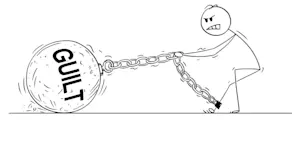What Makes This Word Tick
"Vilify" is a word that knows how to pack a punch. It conjures images of character assassination and harsh criticism. Used when someone's being unfairly smeared, this verb communicates the act of speaking or writing in a way that damages someone's reputation.
If Vilify Were a Person…
Imagine Vilify as the town gossip who just can't hold back a juicy story, always whispering secrets behind a gloved hand. Charming at first but quick to twist tales, it loves the drama of stirring the pot.
How This Word Has Changed Over Time
"Vilify" traces its roots back to the Latin word "vilis," meaning cheap or base. Over time, it came to embody the act of demeaning someone through words. Its core essence has remained stable, grounded in the notion of making someone seem lesser in value.
Old Sayings and Proverbs That Use Vilify
While there aren't direct proverbs using "vilify," phrases like "give a dog a bad name and hang him" or "a lie can travel halfway around the world" capture the spirit—demonstrating how easily a reputation can be damaged.
Surprising Facts About Vilify
You might be surprised to know that "vilify" was once a more common legal term used in defamation cases and slander suits. It's a chameleon of a word, becoming less formal as it steps into the modern realm of social media.
Out and About With This Word
In today's world, any celebrity might find themselves vilified after a public faux pas. From the trial by Twitter to salacious tabloid headlines, "vilify" thrives in the spotlight of public opinion, often fueled by misinformation or exaggeration.
Pop Culture Moments Where Vilify Was Used
Think of the media frenzy around various scandals—from Bill Clinton's impeachment to Britney Spears' tumultuous early 2000s. The tendency to vilify certain figures highlights our cultural appetite for drama.
The Word in Literature
In literature, "vilify" might be wielded in courtroom dramas and novels exploring themes of reputation, such as Arthur Miller's "The Crucible," where accusations fly with the intent to ruin lives.
Moments in History with Vilify
During the McCarthy era, many were vilified for alleged communism ties, underscoring a dark period where words were weaponized. Vilification turned personal fears into widespread paranoia.
This Word Around the World
Internationally, "vilify" can take on different forms. In French, you might "diffamer" someone, while in Spanish, it translates to "vilipendiar." Despite linguistic differences, the impact remains universally damaging.
Where Does It Come From?
"Vilify" sprouted from Middle English "vilifien." It evolved from Latin origins, with "vilis" implicating something of low worth—a theme that echoes the current meaning of the word when applied to people's reputations.
How People Misuse This Word
People often mistake "vilify" for its cousins like "denounce" or "criticize." However, "vilify" specifically involves defamation and an element of unfair representation, not just mere disapproval.
Words It’s Often Confused With
Defame: Both suggest damaging a reputation, but "defame" often implies falsehood or malice.
Denounce: Usually means to condemn publicly, without necessarily harming reputation.
Criticize: Implies evaluation, which can be positive or negative, lacking the harsh intent of "vilify."
Additional Synonyms and Antonyms
Synonyms for "vilify" include slander, malign, and smear. Antonyms include praise, commend, and exalt.
Want to Try It Out in a Sentence?
After the scandal broke, her once-sterling reputation was vilified beyond recognition, leading her to retreat from the public eye.
















